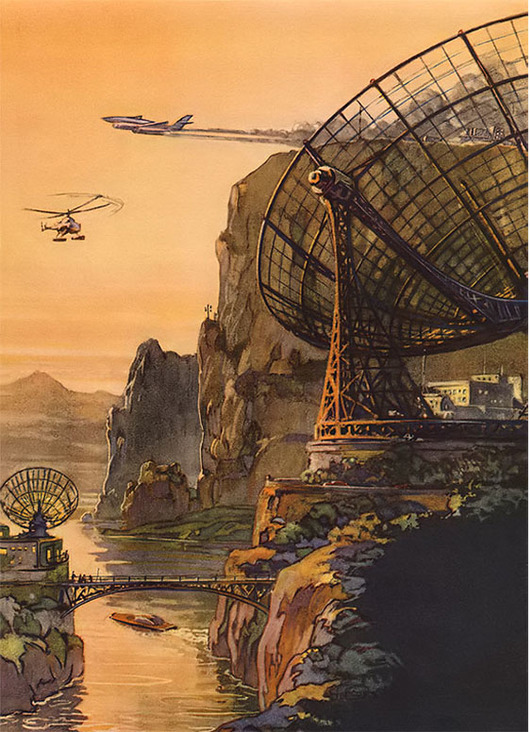Unsorted links, May 2017: Level of Detail of Reality, Ted Chiang and Jupiter
A monthly collection of random links and commentary. This one corresponds to the past May.
Links
Reality Has A Surprising Amount of Detail
[random.ideas, philosophy.not_rigorous]
Stan vs PyMC3 vs Edward
[software.stan, software.pymc3, software.edward, stats.bayesian, stats.software, stats.ML, stats.probabilistic_models, applied.stats]
Speaking of PyMC3, Bob Carpenter compared writing a sort ‘Hello World’ model in various probabilistic programming languages. Of Edward I had not even heard before…
And speaking of Stan, found this cool tutorial on blog Quantitative Archaeology.
Ted Chiang
[culture.ted_chiang, culture.science_fiction, culture.lit, books.authors, culture.films]
I saw Arrival not too long time ago, and was positively surprised. Later I found out that the film was based on a short story by Ted Chiang, and then even later I found out that Ted Chiang is a truly remarkable science fiction author.
A portrait by Joshua Rothman for The New Yorker, an interview by Meghan McCarron for Electric Literature.
Another short story by Chiang, Exhalation.
Oldie But Goodie
[math.general, math.random, math.stuff, math.advice, culture.mathematics]
Jeremy Kun: Mathematicians Are Chronically Lost and Confused.2
Retrofuturism, Soviet-style
[history.ussr, culture.soviets, culture.technology, culture.science_fiction, culture.futurism, culture.science, culture.magazines, culture.essays, random.defunct_soviet_magazines]
Set your cover illustrations to ‘stun’: A Soviet vision of the future: the legacy and influence of Tekhnika – Molodezhi magazine, by Alyona Sokolnikova. Discussion in HN.

Retrofuturism, American Pulp Fiction-style
[culture.science_fiction, culture.pulp, random.misconceptions]
VintageGeekCulture on misconceptions about pulp-era scifi.
More Picture from Space
[science.spacecraft, space.things, space.jupiter, science.solar_system]
We have first results from NASA’s Juno mission.. More about the Jupiter-orbiting spacecraft at missionjuno.swri.edu (e.g. raw image data from the spacecraft is available).
Your Daily Dose of Facebook-Bashing
[culture.social_media, culture.facebook, culture.nerds, culture.open_internet, internet.freedom]
This time, by John Gruber of the Markdown fame. Joe Cipelinski chimes in.
Your Daily Dose of Vim
[software.vim, culture.nerds, culture.geekery, culture.technology, software.linux]
Stack Overflow: Helping One Million Developers Exit Vim, by David Robinson. More anecdotes at HN discussion thread.
(Also, lol at Sweden and jQuery developers.)
Fun In Linux Terminal
[software.linux, things.useful, notes.to_self]
Linux utils that you might not know, by Igor Sarcevic.
No, I did not know about cal before. Cool!
Two Minutes to Midnight3
[things.nuclear_bombs, random.nuclear_warfare, history.cold_war]
Milo Beckman writing for ‘‘Bayesian Update’’ at 538: We’re Edging Closer To Nuclear War.
The trouble is, nuclear risks are hard to measure quantitatively. The small sample size (two bombs dropped, ever) and rapidly changing technological and diplomatic contexts don’t exactly lend themselves to simple mathematical modeling. While such models do exist, they are “mainly an exercise in structuring one’s thinking, not something that would provide a ‘right’ answer,” according to Matthew Bunn, a professor at the Harvard Kennedy School.
Deep Trouble in Imaging Research?
[applied.deep, applied.deep_learning, applied.CV, applied.AI, stats.ML, applied.image_processing]
Michael Elad for SIAM News: Deep Learning’s Impact in Image Processing, Mathematics, and Humanity
Today, deep learning treats many other image processing needs, with unsurpassed results. This is true for single image super-resolution, demosaicing, deblurring, segmentation, image annotation, and face recognition, among others.
Should we be happy about this trend? [..]
Yet another article in the unending series of nervous musings on the implications of deep learning. However, instead of the usual kind of speculation about possibly wide-randing societal changes, Elad presents a viewpoint of the other kind of image processing research tradition:
The facts speak loudly for themselves; in most cases, deep learning-based solutions lack mathematical elegance and offer very little interpretability of the found solution or understanding of the underlying phenomena. On the positive side, however, the performance obtained is terrific. This is clearly not the school of research we have been taught, and not the kind of science we want to practice. Should we insist on our more rigorous ways, even at the cost of falling behind in terms of output quality? Or should we fight back and seek ways to fuse ideas from deep learning into our more solid foundations?
Food for thought. Unfortunately Elad does not provide a conclusion nor even a thesis.
On Difference Between Geist of Different Cities
[random.cities, culture.essays]
Paul Graham, Cities and Ambition (2008).
Privacy and Intelligence Legislation in Finland
[politics.finland, internet.privacy, internet.legislation, internet.snooping]
Jyrki Kasvi comments on current legislation (in Finnish).
Neil Postman in the 21st Century
[culture.essays, culture.george_orwell, culture.neil_postman, culture.tv, culture.america]
Megan Garber for the Atlantic: Are We Having Too Much Fun? on Neil Postman’s Amusing Ourselves to Death.
Garber’s viewpoint is American, but IMO today this would apply to the West in general, not just US.
Yanis Varoufakis Published Memoirs
[books.reviews]
The title is Adults in the Room. Paul Mason reviews for the Guardian.
On History of Student May Day Festivities In Finland
[culture.vappy, history.finland, history.cultural_history, history.universities, culture.finland]
Turun Ylioppilaslehti, in Finnish.
Footnotes
1:
Where I have seen that name before? Oh right.
2:
I am doing something right?!
3:
And here the obligatory reference.
